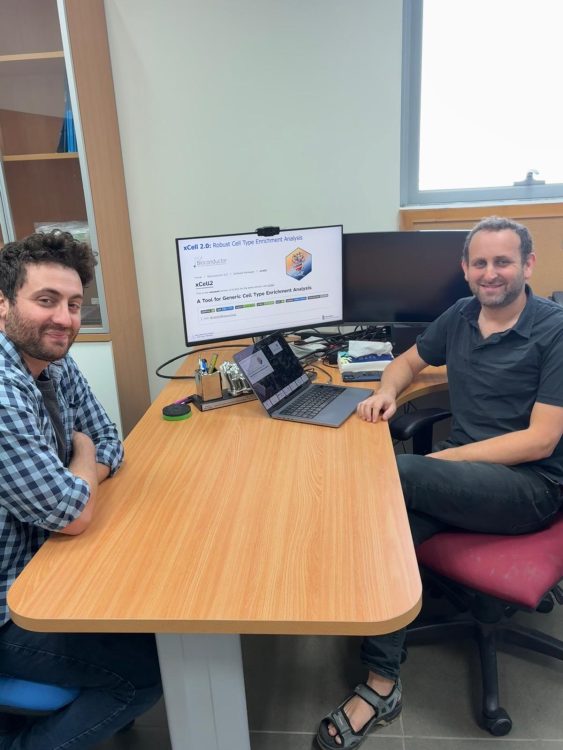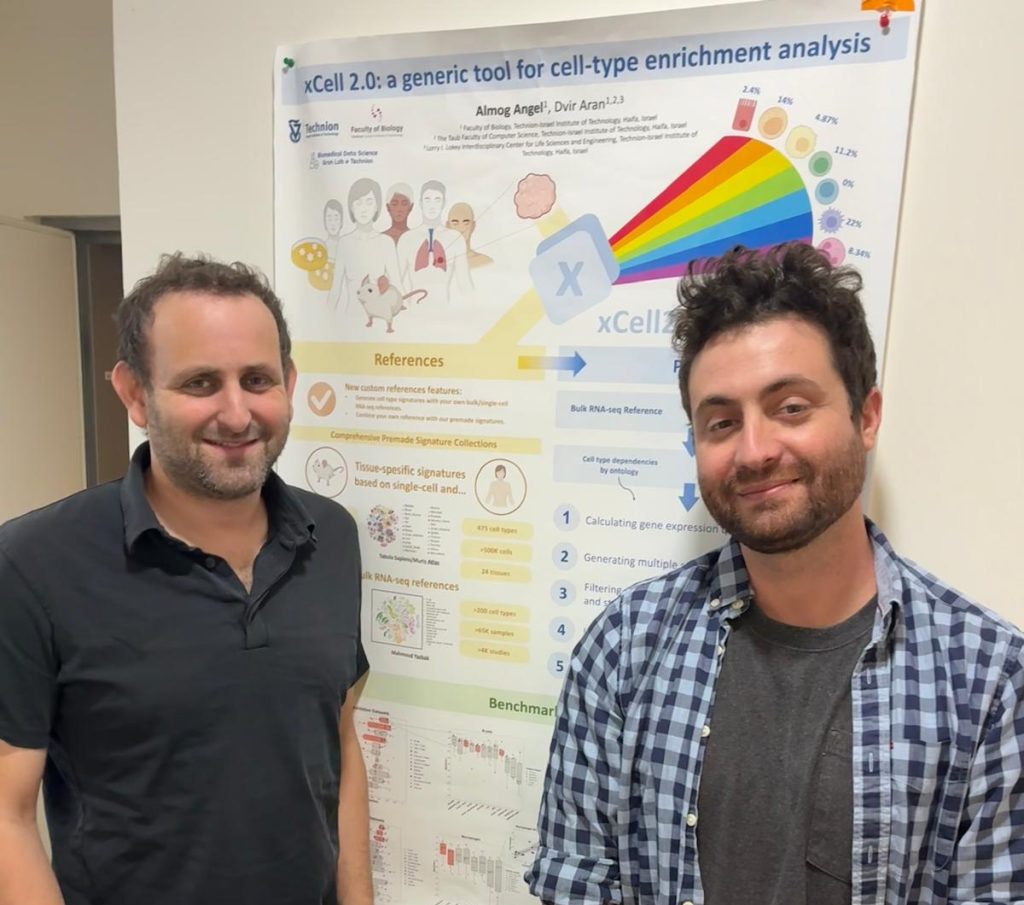The winner of Paper of the Month for September 2025 is Almog Angel from Dr. Dvir Aran’s lab, whose article has been accepted for publication in Genome Biology! This is an impressive achievement that marks the culmination of a long period of in-depth research.
To celebrate the occasion, we asked him to share a few insights about the scientific work in the lab, the discoveries presented in the article, and a bit about himself.
Almog – tell us briefly about yourself. What did you study, what led you to this field, and what is your current role and workplace?
I live in Kibbutz Nir David, am married to Michal, and am the father of Noga, Ziv, and Koren. My path in this field began in high school when I majored in biotechnology- a step that set me on a continuous trajectory of study and scientific activity. Before my military service, I completed studies as a practical biotechnology engineer, followed by service in roles related to the field. I then continued to a bachelor’s and master’s degree at Tel-Hai College, where I was exposed to bioinformatics and microbiome research. Currently, I am in the advanced stages of my PhD in the Aran Lab, researching and developing tools for analyzing genomic data (RNA-Seq and Single-cell RNA-Seq). My main analysis focuses on characterizing the cellular environment, including immune cells and stroma, in blood samples and tumors from malignant and autoimmune diseases. The central goal is to understand the dynamics that cause changes in cell composition due to various treatments, in order to streamline and refine therapeutic strategies for patients.
What is the general focus of the Aran Lab?
The Aran Lab integrates multidimensional biomedical data, including genomics and clinical data, to advance precision medicine and improve therapeutic strategies. The lab’s central research axes include developing computational methods to understand cellular heterogeneity in complex tissues, utilizing advanced technologies to study cell dynamics in the tumor microenvironment and their effect on immunotherapy response, and using medical data to build machine learning models for improving clinical decision-making.
Tell us about the winning article: what was the central research question, what did you discover, and what was exciting or surprising during the process?
The article introduces xCell 2.0, an improved tool for performing cell type enrichment analysis (“deconvolution”) on Bulk RNA-Seq/Microarray data. This method allows for the reconstruction of lost information regarding the cellular composition of whole tissue samples (Bulk). Despite the success and popularity of the first xCell version, it was difficult to refine its use for unique samples from various diseases and organisms or to utilize the high resolution of Single-cell RNA-Seq to identify unique cell types. xCell 2.0 addresses these limitations and even surpasses them in performance. In a comprehensive benchmark against 11 alternative methods, xCell 2.0 demonstrated consistent superiority in accuracy and reliability. The most exciting and surprising finding was that xCell 2.0 successfully improved the performance of models predicting response to immunotherapy in cancer patients, achieving an accuracy level that surpassed not only alternative methods but also established, dedicated biomarkers such as TIDE and IMPRES.
What is the significance of your discovery? What future directions or applications could your research lead to? How do you see its impact on the field in the coming years?
The significance of the tool lies in enabling researchers to utilize vast existing Bulk datasets to generate new insights into tissue heterogeneity with greater accuracy and flexibility than before. The research opens the door to advancing precision medicine, as the ability to accurately characterize the tumors’ microenvironment may assist in tailoring treatment strategies for patients and sparing them from ineffective treatments. In the future, this approach could be expanded to research autoimmune diseases and other medical conditions.
What are your aspirations going forward in your career?
I aspire to harness the scientific knowledge, tools, research experience, and entrepreneurial passion I cultivated during my PhD to drive practical applications that will advance precision medicine.

⬅ Link to the article: https://genomebiology.biomedcentral.com/articles/10.1186/s13059-025-03784-3
⬅ Link to Dr. Dvir Aran page: https://biology.technion.ac.il/member/%D7%90%D7%A8%D7%9F/
⬅ Link to the Aran Lab website: https://aran-lab.com/








